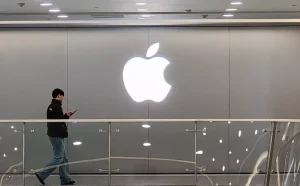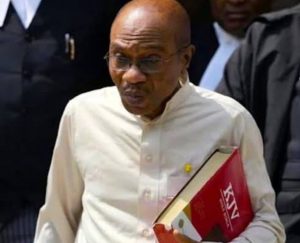₦71.2 Billion Missing From Nigeria’s Student Loan Scheme: ICPC Probes NELFUND
The Independent Corrupt Practices and Other Related Offences Commission (ICPC) has launched a high-profile investigation into the alleged misappropriation of ₦71.2 billion from the ₦100 billion earmarked for Nigeria’s student loan initiative under the Nigerian Education Loan Fund (NELFUND). The probe has rocked the federal government’s education intervention efforts and sparked widespread concerns about the transparency of public spending.
The ICPC has formally invited the Director-General of the Budget Office, the Accountant General of the Federation, and the Executive Director of NELFUND to appear before its investigative panel. The anti-graft agency is demanding complete documentation, including budgetary releases, fund utilization reports, disbursement records, and transaction logs to clarify the substantial gap between allocated and accounted funds.
The Nigerian government launched the student loan programme in 2023 with the goal of widening access to higher education for low-income families. The scheme, championed by President Bola Tinubu as a core component of his administration’s social reform agenda, was allocated a start-up fund of ₦100 billion in the 2024 budget.
YOU MAY READ
Niger State Government Probes Officials Collecting Bribes for Promotion, Payroll Processing, Seeks Public Petitions
However, questions began emerging early in 2025 when civil society organizations and independent observers raised concerns over discrepancies in publicly available disbursement data. A whistleblower report, which went viral on social media, claimed that over ₦100 billion had already been distributed—but to fewer than 600 beneficiaries.
This claim contradicted NELFUND’s own official report, which stated that ₦20.07 billion had been disbursed as tuition assistance to 192,906 students, while ₦12.82 billion had gone to 169,114 students as monthly stipends. In total, that amounts to ₦32.89 billion disbursed, leaving over ₦67 billion unaccounted for. The ICPC, upon its initial audit, estimates the missing funds to be closer to ₦71.2 billion.
In response to the unfolding scandal, NELFUND’s Executive Director, Mr. Akintunde Sawyer, denied the accusations during a press conference in Abuja. He argued that the figures circulating on social media were inaccurate and described them as the work of “misinformed critics or malicious actors.”
Mr. Sawyer emphasized that the agency had only received a portion of the allocated ₦100 billion and that disbursements were ongoing, guided by rigorous processes and a transparent online application system.
“We have been working in close coordination with university registrars, finance departments, and verification bodies to ensure that only qualified students receive these loans,” he said. “We have also made efforts to update our portal to reflect real-time disbursement records. We remain open to oversight and welcome the ICPC’s scrutiny.”
He added that NELFUND received ₦50 billion from the Economic and Financial Crimes Commission (EFCC) in recovered funds earlier in 2025, which were redirected to support the student loan programme based on a presidential directive.
Despite NELFUND’s assurances, frustration is growing among Nigerian students, many of whom report delays in disbursement or outright non-payment despite approval notices.
YOU MAY READ
Edo: Okpebholo’s barrage of empty probes, a diversionary tactic to mask his incompetence, unpreparedness for office
At the University of Calabar, Emmanuel Ekanem, a final-year economics student, said he applied for the loan in late 2024 and received a confirmation email indicating his application had been approved. However, as of May 2025, he had received nothing.
“I’ve called the help lines. I’ve sent emails. No response. I went to the bursary office, and they told me to wait. How long are we supposed to wait while school fees pile up?” he asked.
At Ahmadu Bello University in Zaria, several students echoed similar frustrations, describing the loan application portal as “non-functional” and communication from NELFUND as “nonexistent.”
A student leader in one of the federal polytechnics said, “They promised that students from disadvantaged backgrounds would get help. Instead, we’re seeing elite schools getting payments while others are left in limbo.”
Sources close to the investigation indicate that the ICPC is focusing on three major areas: diversion of funds to unauthorized accounts, use of ghost beneficiaries, and discrepancies between reported disbursements and actual banking transactions.
Investigators are cross-referencing data from the Ministry of Finance, the Central Bank of Nigeria, and commercial banks used by NELFUND. They are also examining metadata from the application portal to detect potential fraud schemes such as fake entries, multiple identities, and algorithm manipulation.
YOU MAY
Eight passengers burnt to d3ath as fuel tanker crashes into vehicles on Benin-Auchi road
A senior ICPC official who requested anonymity told this reporter, “We’re dealing with a complex trail, but there is strong evidence that a significant portion of the funds never reached the intended recipients. We’re looking into possible collusion within the agency and involvement of external actors.”
The controversy is not only about numbers. It is a moral and political issue, given the scale of hardship faced by students and the significance of education for national development.
Dr. Funmi Alade, an education policy analyst at the University of Ibadan, noted, “When a country fails to properly implement a student loan scheme, it risks pushing more youth into dropout, poverty, and hopelessness. What’s worse is that the trust deficit grows. Young Nigerians already feel betrayed by the system.”
The Socio-Economic Rights and Accountability Project (SERAP) has called on the National Assembly to hold public hearings on the matter and to enact legislation that would make student loan management more transparent and subject to quarterly audit reviews.
Opposition lawmakers have also called for heads to roll. Senator Okey Maduka of Enugu East stated on the Senate floor, “This is daylight robbery. If we cannot account for ₦71.2 billion meant for students, how can we claim to be investing in the future?”
The Director-General of the Budget Office, the AGF, and NELFUND’s leadership are expected to appear before the ICPC next week. A comprehensive audit report will follow shortly, which may determine whether criminal charges will be filed.
Sources at the Ministry of Finance confirmed that an internal committee has been established to work with investigators and prevent further discrepancies in future disbursements.
If substantial wrongdoing is established, the case could lead to a reshuffling of personnel at NELFUND and even ministerial sanctions. Legal experts say those involved could face charges under Nigeria’s Financial Management and Fraud Prevention Act, the ICPC Act, and provisions of the Cybercrime Act if digital forgery is involved.
At the heart of the ₦71.2 billion scandal is a story of lost opportunity. In a country where many families cannot afford higher education, the promise of student loans held the potential to lift thousands out of poverty. Now, that promise is clouded by allegations of fraud and mismanagement.
While the ICPC’s investigation may yet offer answers, the damage to public confidence is already done. Nigerians await justice—not just in the form of prosecution, but in the hope that such a programme can still be salvaged to serve the students it was designed to help.





